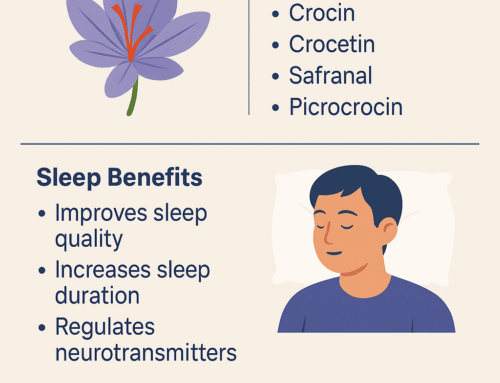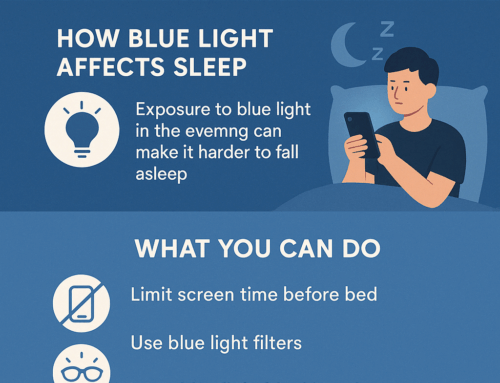How Solar Eruptions Can Impact Mental Health
Solar eruptions are a fascinating yet often overlooked phenomenon regarding their potential impact on human health and well-being. Known scientifically as solar flares or coronal mass ejections (CMEs), these intense bursts of radiation from the sun can affect Earth’s magnetic field, disrupt communication systems, and, intriguingly, may also influence human mental health. In this post, we’ll dive into what solar eruptions are, explore how they might impact our mental and emotional well-being, and discuss ways to navigate these cosmic influences.
Understanding Solar Eruptions
Solar eruptions occur when magnetic energy builds up on the sun’s surface and is suddenly released through intense energy waves. This energy can send charged particles, radiation, and magnetic fields hurtling toward Earth, impacting our planet’s magnetic field in what’s known as a geomagnetic storm. Although Earth’s atmosphere protects us from direct exposure to harmful radiation, the energetic disruption in Earth’s magnetosphere can still affect us indirectly. To view the latest solar events, visit https://www.lmsal.com/solarsoft/latest_events/
The Human Body, Magnetism, and Mental Health
The connection between solar eruptions and mental health may seem far-fetched, but research into geomagnetic fields suggests it could be significant. Our bodies, particularly our brains and nervous systems, are influenced by electrical impulses and magnetic fields, and some studies indicate that fluctuations in Earth’s magnetosphere could influence human biology in subtle but impactful ways.
- Mood and Emotional Stability
Geomagnetic storms have been linked to mood changes and increased reports of irritability, sadness, and even anxiety. While researchers are still exploring the specifics, one theory is that Earth’s magnetic field changes could interfere with our circadian rhythms (our internal body clock), potentially disrupting sleep patterns and affecting mood. Those sensitive to changes in magnetic fields may be especially susceptible to emotional fluctuations during periods of increased solar activity.
- Sleep Patterns and Fatigue
One of the most commonly reported effects of solar eruptions is disrupted sleep. Sleep is essential for emotional regulation, memory processing, and overall mental health. When sleep is compromised, people are more likely to feel stressed, anxious, or even experience depressive symptoms. Studies have shown that during geomagnetic storms, people may find falling or staying asleep more challenging, which could increase fatigue, irritability, and even mental fog.
- Stress and Anxiety
For some, solar storms can contribute to a feeling of unexplainable tension or stress. This response could be an evolutionary remnant, as our ancestors relied on natural cycles and magnetic cues for navigation and migration. Although we are less directly affected by these forces today, sensitive individuals might still experience heightened stress levels during intense geomagnetic activity.
- Heart Health and Mental Health Connection
Geomagnetic storms have been linked to an increase in incidents of cardiovascular issues, which may be of particular interest to those who understand the heart-mind connection in mental health. Increased cardiovascular strain can influence stress levels and exacerbate conditions like anxiety and panic disorders, as the physical symptoms can mimic or trigger a mental health response.
In 2018, Cambridge reported a study on Geomagnetic Storms and their association with mental health hospital admissions.
Coping with the Effects of Solar Eruptions on Mental Health
While we can’t prevent solar eruptions, there are ways to mitigate their potential impact on mental health. Here are a few practical steps to help you stay grounded during times of increased solar activity:
Practice Good Sleep Hygiene: When solar activity is high, prioritize your sleep routine. Try to keep a regular sleep schedule, limit exposure to screens before bed, and engage in relaxation techniques like deep breathing or meditation to prepare for restful sleep.
Stay Hydrated and Eat Well: Hydration and nutrient-dense foods can help balance your body and counteract some of the physical stress caused by solar storms. Avoid stimulants like caffeine or alcohol, as these can disrupt your sleep and elevate anxiety. View our blog post about the importance of nutrition.
Mindfulness and Stress Management: Daily mindfulness or stress management techniques can be beneficial. Practicing grounding exercises, meditation, or light stretching can help soothe both body and mind.
Stay Informed, but Not Overwhelmed: Some individuals may feel more anxious just knowing about these cosmic events. While it’s good to be informed, avoid excessive monitoring of solar activity if it causes undue stress. Following a reliable source for occasional updates can be enough to stay aware without feeling overwhelmed.
Connect with Nature: Ironically, one of the best ways to counteract any stress from solar activity is to reconnect with nature. Spending time outdoors, even if it’s just for a short walk, can help reset your internal rhythm and boost your mood.
Talk About It: If you’re experiencing unusual mood changes or sleep disruptions, contact a friend, family member, or mental health professional. Simply discussing your feelings can alleviate some of the stress and help you feel more grounded.
Looking to the Future
As our understanding of solar activity and its effects on Earth grows, scientists may uncover more insights into the connection between geomagnetic storms and mental health. Although research is ongoing, taking simple precautions to maintain emotional balance and resilience during increased solar activity can make a difference. Solar eruptions remind us of our interconnectedness with the universe, highlighting the importance of staying attuned to cosmic rhythms and personal self-care.







JEM means WHAT ? nonidea
WRONG beginning
Hi Hubert, it stands for Jacob Edward Machovsky which is on our about page.
This is a really interesting article!
I suspected that solar flares affected some people over others due to changes in behaviour in the children I taught and a family member ( all already just managing their emotions on good days).
I began to pay close attention to solar effects to help with planning. I’d like to see some references/citations and footnotes on your articles, however. Otherwise, I would have shared this.
Thank you Sharon. Here is an article I used. I will update the blog post now. https://www.cambridge.org/core/journals/the-british-journal-of-psychiatry/article/abs/geomagnetic-storms-association-with-incidence-of-depression-as-measured-by-hospital-admission/78F4CE06FB5B69FC16E5417A05787210
Many people don’t believe it, but it makes sense when you realize the affect of the sun and moon on our planet.
I found this article by chance as we have been seeing massive coronal ejections (21:05/25) recently from the sun. I have ME/CFS/Fibromyalgia and have definitely felt off over the last few days especially sleep wise. I guess I must be sensitive to it. I’ve also been moody, depressed a bit more and just snappy so it makes total sense that there is a connection.
Thanks Kellie, it is an interesting subject and one not spoken of often.
It will be respectfully noted that, as studies show, solar eruptions, unlike proton flares, play a more protective role: https://doi.org/10.31223/X55B1S
Hi, many studies also show cardiovascular and anxiety issues with solar flares and storms.
Thank you for sharing this information. I’ve read about the effect solar flares can have on our emotions and spirit only briefly before on metaphysical sites.
It’s so wonderful seeing it in words on a site like this that is capable of reaching the ones who aren’t into the metaphysical arena.
Yesterday was a rough one for me and I didn’t realize why until late in the day so I searched the net for some research I can share with others who may also be having a difficult time. Thank you again.
Thank you Chris. Many don’t realize the power of the sun and how it impacts not only our planet but ourselves.
Found this article because I’ve been having really bad anxiety this week since solar flare this week . It’s the only thing I can put it down too . Hope everyone is ok and please talk to someone .
Thanks Sean, hope all is well with you.
I am affected negatively by solar storms.
Headaches
Sleep
Vision
Mental health
Feeling unwell.
I believe the right brain stroke in May 2024 was triggered by solar flares. The recent solar flares over a ling stretch of May into June of 2025 are affecting my health and wellbeing. Headaches, body aches likely caused by cardiovascular issues.
What steps can I take to reduce symptoms?
HI Joey, I am unsure of all the steps as I am not a health practitioner, but I would say to try and ensure you are as healthy as possible and getting good sleep.